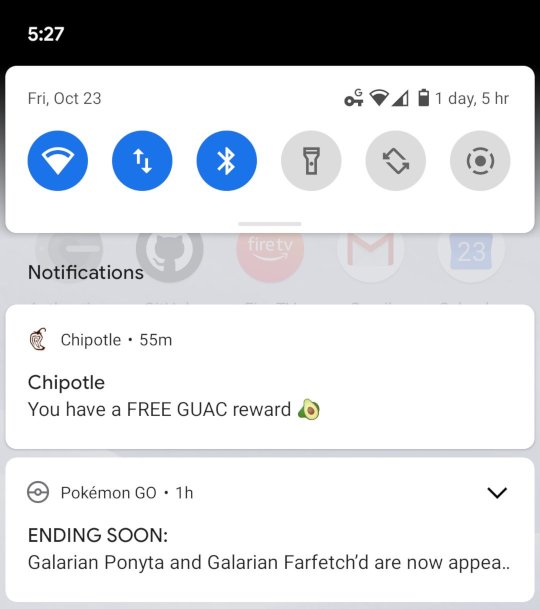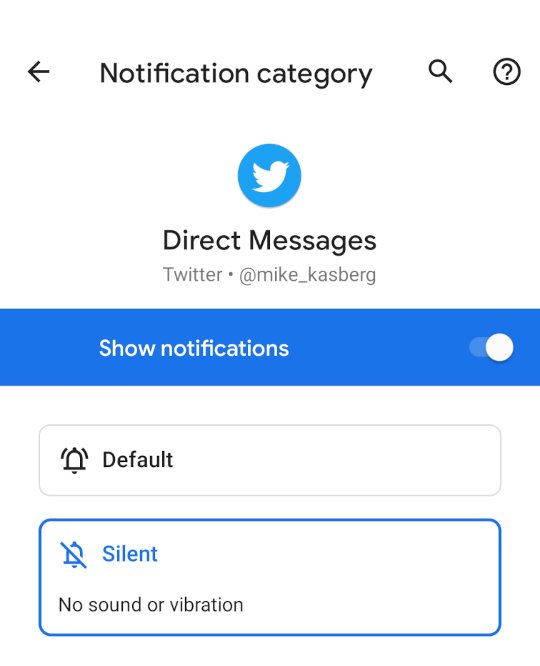
Unsubscribe Me: How to Disconnect from Internet Chaos
The Social Dilemma came out about a month ago and got a lot of people thinking about the influence the internet and social media have on their daily lives. I’m a programmer, and I’ve worked for an internet advertising company, so none of this was new information to me. But for a lot of the American public, watching The Social Dilemma was an eye-opening experience into the ways that internet companies try to track and manipulate people. Many of my friends used words like “unsettling” and “eerie” to describe how they felt after seeing the film, but most of them also weren’t really sure what to do about it. They weren’t sure how to make positive changes in their own lives.
So in this blog post, I want to explore some simple changes that I’ve made, and that you might think about making too. I’ve been doing some of these things for years and I’ve started some much more recently, but with these issues at the front of my mind recently, and I think I have a reasonable approach to at least heading in the right direction. The Social Dilemma website provides its own Take Action page, and most of the advice there isn’t bad as a starting point. Most of my own suggestions are minimally invasive and relatively simple. I haven’t completely stopped using social media, and I wouldn’t necessarily recommend that as a solution, unless you want to of course. I think it’s important to be pragmatic about what you can do in a way that still allows you to maximise the personal value you get from online services.
Your Time is Valuable to Companies
When people ask me about the movie, I always say that I think it’s a really well-done visualization of the competition for your time. Companies want your attention because your attention is valuable. This isn’t new. In the 80s and 90s, you saw ads on televisions, billboards, newspapers, and magazines. Companies want you to notice them so they can sell you a product. And for the most part, people have been pretty happy to make that trade. Who among us doesn’t get excited for a 20% off coupon at your favorite store?
In addition to straight-up ads, your time is valuable to companies in other ways. Have you ever used a free app that didn’t have ads? Instagram didn’t have ads before late 2013, for example. So why did Instagram care about your time if they weren’t showing you ads? Your time is valuable to companies even if they’re not directly advertising to you. Instagram is valuable as a company, in part, because of the size of its user base. Apps with a big user base are valuable because they can monetize that user base in a variety of different ways – from showing ads to selling data or getting you hooked on a service they’ll charge for.
The Competition for Your Time
So apps want your time and they’re willing to compete for it. But they’re not the only thing that’s competing for your time. Think about all your interactions with media in a typical day. Maybe you listen to a podcast in the morning or on the way to work. Does the podcast have ads? What about the app you use to play it? Early in the workday, you notice a few notifications from your favorite social apps. A couple likes, maybe a comment. Also, a notification from one of your restaurant apps that they’re running a promotion today. Later, your phone rings. It’s a spam call. You also notice a couple spam text messages that you delete. In the afternoon, you check your email. Out of all the unread emails in your inbox, you delete about half without reading them. When you get home, you turn on your Fire TV where you see ads for a bunch of TV shows or movies. Then you open the Netflix app where they’re promoting today’s top new shows. Everyone is competing for your attention all the time.

Ads aren’t new, but the intensity of the competition for your attention and time is higher than it’s ever been before. It’s in companies’ interest to have as much of your attention as they can, but it’s in your interest to give them the minimal amount of attention necessary to get the value you want from them. Companies are ruthless and aggressive in their pursuit of your attention, and they’ll win the battle if you don’t put in any effort. Fortunately, there are some low effort solutions that can produce very beneficial results, and my approach is focused on this.
Optimize Your Digital Life
Companies love email. Sending emails for marketing purposes is a billion-dollar industry. For anyone who wants to promote something to you, email is a way for them to get your attention. Your email address itself is valuable to many companies because it allows them to (possibly) show you ads when they otherwise wouldn’t be able to show something to you. (This is why companies will do things like giveaways in exchange for your email address.) They will hire marketing professionals whose job is to write a clickbait subject line to get you to open the email so they can show you their ad. And they will track when you open the email so they know if it’s working. (Images are used to track views, which is one reason Gmail blocks images from unknown senders by default.) Unfortunately, spam is a hard problem to solve, and there isn’t a perfect solution. But there are some steps you can consider that might help reduce the way email intrudes into your life.
- Unsubscribe from anything you don’t really need. If you’re not sure, it’s probably best to unsubscribe. You don’t really need to be bothered by your college alumni newsletter, and you don’t really need to be bothered by that mailing list you signed up for 2 years ago. In fact, you probably don’t need any sort of regular communication except perhaps from an organization you actually interact with on a very regular basis.
- Try to avoid giving out your email address. It’s really not worth it for whatever one-time promotion you’re getting. Or perhaps use a second email just for spam.
- Turn off all your email notifications. Email is asynchronous communication. It should not ever send you a notification to interrupt whatever you were doing. Not on your phone, not on your computer. Check your email on your own schedule at your leisure.
- Keep an eye out for better email services. Hey is trying to make email better and they have some interesting solutions to the spam problem. Maybe they will help, or maybe the industry as a whole will come up with some new solutions based on their ideas. We can be hopeful!
Social Media
Like email, social media is another place companies fight for your attention. You want to log on to Facebook to see your friends pictures, companies want to show you their ads instead. Some of this is obvious – like an advertisement in your news feed. Sometimes, it’s less obvious – like an athlete you follow posting a photo with a big logo in it or a band you like posting about a show in a far-away city. Whatever the case, it’s likely that you’re not getting the most value from whatever social media platform you’re trying to use.
- Unfollow things you don’t want to see. You don’t necessarily have to “unfriend” someone to “unfollow” them (depending on the platform). But if you’re following things you’re not interested in (whether it’s people, movies, companies, or brands), you’re just giving away space in your news feed that doesn’t even count as an ad.
- Like email, disable all notifications. For 99% of the people in the world, the ideal way to use social media is on your own schedule, like email. You don’t need to be notified on your phone or computer when a friend posts or even replies to a comment. It will be there in your feed when you decide you want to look at it.
- Consider using Facebook Container for Firefox. It prevents Facebook from tracking your activity across many non-Facebook websites.
- Be aware of the ways you might be targeted by advertisers. When you share information with Facebook (likes, interests, your profile page), they can use that information to show you specific ads. This isn’t necessarily the worst thing in the world, but it’s good to be aware that they’re using the info you give them to do this.
- Consider ditching social media completely. Do you really need to use Facebook and Instagram, or can you just email your friends some pictures from your last trip instead?
Other Apps
Apps are the new email. Shortly after email was born, companies began figuring out how to use it to advertise. Now, companies are figuring out how to advertise on phone apps. Most of the time, “ads” on phone apps come in the form of notifications. Have you ever installed a new app and been surprised about all the notifications you start getting? “Welcome to so-and-so, let us show you around.” “5 tips to get started quickly.” “Add this to your account.” “We noticed you didn’t log in yesterday.” “Act now for a 10% discount.” You don’t need any of this. Notifications on your phone make a noise to interrupt you. They cut off the real-world conversation you might be having, or they break your train of thought. As such, you should only get notifications for things you’d actually want to interrupt you. Namely, things that require immediate action. A phone call. Perhaps a text message. Maybe meeting reminders from your calendar. Of all the apps on your phone that can send you notifications, I bet about 90% of them can wait ‘til later. I think it’s one of the biggest failures of UX design on both Android and iOS that notifications are enabled and noisy by default. Instead, they should probably be opt-in per app (off by default), and silent by default (or even have a better mechanism for a “notification inbox” that can be dealt with at your leisure). Regardless, there are some things you can do that make a really big difference here.
- Disable notifications for any app that doesn’t need to interrupt you. On both Android and iOS, it’s possible to remove the app’s notification permission. Any time an app sends you a notification that you don’t care about, do this.
- If you can’t disable all notifications for an app, see if you can turn off all but the type you care about. For example, maybe you want to be notified of direct messages on Twitter, but you can still turn off all other notification types for that app.
-
If you can’t disable a notification (for whatever reason), would it make sense to silence it? Silencing a notification means no vibration or noise, but you can check it at your convenience in the notification bar. You should be able to do this for any app from the system settings.

- Can you just uninstall the app? Sometimes that’s an easier solution for badly-behaved apps than trying to figure out the notification permissions. Your phone is your space, don’t let companies/apps intrude into it who don’t need to be there.
- Do you need to limit your screen time? It’s pretty well documented that people will spend hours using phone apps because of the dopamine hit the apps provide. Like many things, it’s probably fine to use apps in moderation, but be wary of becoming sucked in. Maybe talk to someone in real life or go outside instead. And if you need help breaking the habit, iOS and Android come with tools to monitor and limit the time you spend on your phone.
Internet Ads
As long as people have been using the internet, there have been ads on it. These days, ads have become much more sophisticated. Large companies – including Facebook and Google – gather data about nearly every website you visit. Even if it’s the website of your local news station or a blog you like to read, it’s likely that at least one big company knows about that visit, and they use this information primarily to figure out what your interests are. This is why, at times, some websites seem to have an uncanny ability to advertise whatever you were just searching for or shopping for. It’s probably impossible to get rid of 100% of ads on the internet, but there are some simple things you can do to protect your data and reduce the number of ads you see.
- Use Firefox instead of Chrome. Chrome is owned by Google, a large advertising company. Firefox will protect you from things like FLoC that Google is integrating with Chrome.
- Use an ad blocker browser extension. I use uBlock Origin and I think it’s the best because it’s open source and not controlled by a company.
- Google collects info about what you type into the search box, so consider using a search engine other than Google and changing your browser’s default. DuckDuckGo is a good alternative to try.
- If you’re tech-savvy, install a Pi-hole on your home network. This is the best generic ad-blocking solution I’ve found. Installation and configuration is somewhat tricky (you need to understand some basics about your home network), but there are guides available that make it easy enough to do.
Protect Your Data
If you’re worried about protecting your data online, you’re probably also worried about geting hacked. One of the most common ways someone might hack you is from a major data breach. Let’s say you have an account on LinkedIn. And let’s suppose LinkedIn gets hacked. Maybe you’re not worried about this - what’s a thief going to do, steal your resume??? Well, one of the problems with large data breaches is that people can use that data to figure out the password you used on LinkedIn. And then they can try to use that password with your email on hundreds of other sites. Amazon, your bank, your email, Facebook, the list goes on. So how do you protect your data online?
- Use a password manager. A password manager helps you use a different password on every site, so a hack on one site doesn’t compromise your information on all the others.
- Use a strong master password that’s never been used anywhere else. There are
two pretty good options for making up a password:
- Think of a sentence with at least 14 words. Maybe a favorite quote. (But not something you say all the time!) Use the first letter of each word. Even better if you include capitalization and punctuation in the sentence.
- Generate a random Passphrase.
Who’s Paying?
If there’s one important thing to remember from this whole article, it’s that nothing is free, even on the internet. If you can’t figure out who’s paying for something, it’s you. You’re exchanging your time (or the ability of companies to show you ads) for the use of a service. Many people have come to expect free services on the internet (like email, Facebook, Twitter, YouTube, etc.). But I think people are finally beginning to realize that they don’t want to trade their time and attention to companies in the way that they have in the past. So I think it’s likely that we’ll see a shift in the coming years, where more online services do away with ads and data tracking and will charge a nominal fee for their use, and many people will be happy to pay this fee to have their privacy protected and be free from ads. If you’re paying a company for their service, the company can focus on building things in a way that benefits you, the user, rather than looking for ways to benefit their advertisers.
About the Author

👋 Hi, I'm Mike! I'm a husband, I'm a father, and I'm a staff software engineer at Strava. I use Ubuntu Linux daily at work and at home. And I enjoy writing about Linux, open source, programming, 3D printing, tech, and other random topics. I'd love to have you follow me on X or LinkedIn to show your support and see when I write new content!
I run this blog in my spare time. There's no need to pay to access any of the content on this site, but if you find my content useful and would like to show your support, buying me a coffee is a small gesture to let me know what you like and encourage me to write more great content!
You can also support me by visiting LinuxLaptopPrices.com, a website I run as a side project.
Related Posts
- How to Test and Optimize Your Home Wifi Coverage 28 Jul 2023
- Dotfiles Secrets in Chezmoi, Without Password Headaches 31 Jan 2026
- A Bookmark to Temporarily Disable your Pi-hole 26 Jun 2020